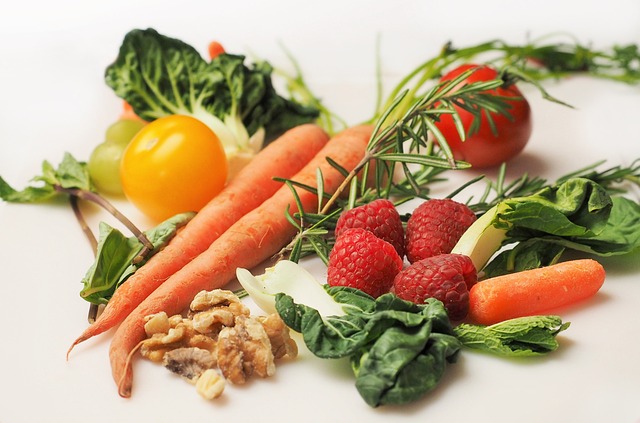Section 1: Introduction
Antioxidants are essential compounds that help the body fight against oxidative stress. They are abundant in certain foods and are widely recognized for their potential health benefits. In this article, we explore what antioxidants are, how they work, and how they can enhance our wellness.
Let’s dive in!
Section 2: Understanding Oxidative Stress
Oxidative stress is a natural process that occurs in the body when there is an imbalance between free radicals and antioxidants. Free radicals are unstable molecules that can cause damage to cells, proteins, and DNA. Antioxidants act as scavengers, neutralizing free radicals and preventing them from causing harm. When there are too many free radicals in the body, oxidative stress occurs, which can lead to chronic diseases such as cancer, heart disease, and Alzheimer’s disease.
Section 3: Types of Antioxidants
There are several types of antioxidants, including vitamins A, C, and E, as well as beta-carotene, selenium, and flavonoids. Each type of antioxidant plays a unique role in protecting the body against oxidative stress. Vitamin C, for example, is water-soluble and is found in many fruits and vegetables. It protects against free radicals in the aqueous environment of the body, such as blood and intracellular fluid. Vitamin E, on the other hand, is fat-soluble and found in nuts, seeds, and vegetable oils. It protects against free radicals in the lipid-rich environment of cell membranes.
Section 4: Food Sources of Antioxidants
Antioxidants are found in many foods, especially plant-based foods such as fruits, vegetables, whole grains, and nuts. Berries, leafy greens, and brightly colored vegetables are particularly high in antioxidants. Other sources of antioxidants include green tea, dark chocolate, and spices such as cinnamon, turmeric, and oregano. Consuming a diet rich in antioxidants can help reduce the risk of chronic diseases and promote overall wellness.
Section 5: Antioxidants and Skin Health
Antioxidants can also enhance skin health by protecting against UV radiation and reducing inflammation. UV radiation can cause oxidative stress in the skin, leading to premature aging and an increased risk of skin cancer. Antioxidants such as vitamins C and E, and beta-carotene, can help protect against UV damage by neutralizing free radicals. In addition, antioxidants can reduce inflammation in the skin, which can contribute to conditions such as acne and rosacea.
Section 6: Antioxidants and Heart Health
A diet rich in antioxidants has been shown to reduce the risk of heart disease. Antioxidants can help protect oxidation of LDL cholesterol, which can lead to the formation of plaque in the arteries. In addition, antioxidants can help improve blood flow and reduce inflammation in the blood vessels. Foods high in antioxidants, such as berries, leafy greens, and nuts, have been shown to improve markers of heart health, such as blood pressure and cholesterol levels.
Section 7: Antioxidants and Brain Health
Oxidative stress is thought to play a role in the development of neurodegenerative diseases such as Alzheimer’s and Parkinson’s disease. Antioxidants may help protect against these diseases by reducing oxidative stress in the brain. Studies have shown that a diet rich in antioxidants can improve cognitive function and reduce the risk of cognitive decline in older adults. Foods high in antioxidants, such as berries, green tea, and dark chocolate, may be particularly beneficial for brain health.
Section 8: Antioxidants and Exercise Performance
Intense exercise can lead to an increase in body. Antioxidants may help reduce this stress and improve exercise performance. Studies have shown that supplementation with antioxidants such as vitamin C and E can reduce muscle damage and improve recovery after exercise. Foods high in antioxidants, such as berries and dark chocolate, may also be beneficial for exercise performance.
Section 9: Conclusion
Antioxidants are essential compounds that play a critical role in protecting the body against oxidative stress. Consuming a diet rich in antioxidants can help reduce the risk of chronic diseases such as cancer, heart disease, and Alzheimer’s disease, as well as improve skin health, heart health, brain health, and exercise performance. Incorporating a variety of antioxidant-rich foods into your diet is an easy and delicious way to enhance your wellness and support overall health and longevity.
Section 10: Take Action
Now that you understand the importance of antioxidants for your wellness, it’s time to take action. Here are some simple steps you can take to incorporate more antioxidants into your diet:
1. Eat a variety of fruits and vegetables, especially berries, leafy greens, and brightly colored vegetables.
2. Snack on nuts and seeds for a quick antioxidant boost.
3. Drink green tea or enjoy a square of dark chocolate for a delicious antioxidant treat.
4. Experiment with spices such as cinnamon, turmeric, and oregano in your cooking for added flavor and antioxidants.
By making these small changes to your diet, you can support your overall health and wellness and protect against chronic disease.




